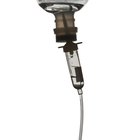
While some privately-run nursing home facilities exist, the majority of nursing homes are run by individual states. State-run facilities have specific admission criteria and qualifications related to patient records, health and financial responsibility that must be met. These qualifications are designed to ensure state-run nursing homes are able to adequately meet the needs of each resident.
Financial Responsibility
Licensed state nursing home facilities accept Medicaid and Medicare, as well as VA benefits and private insurance plans. An income and asset assessment will be conducted as part of a state-run nursing home admissions process. The criteria for these assessments vary by state and are designed to ensure residents are able to pay for the costs of nursing home care, either through government benefit programs, private insurance or their own financial resources
Medical Need
Many state-run nursing homes have waiting lists for beds and potential residents are evaluated in terms of medical need and whether or not their medical requirements can be served by the particular nursing home facility. Not all facilities provide the same levels of care. Some, for example, provide Alzheimer’s care, while others do not. If an applicant's medical needs can’t be met by the nursing home in question, the applicant may be referred to another state-run facility.
VA Nursing Homes
Veterans Administration (VA) nursing homes have federally regulated standards for admission in addition to the admission qualification requirements of the individual state. For a resident’s VA nursing home care to be covered by the VA, the veteran must require nursing home care as a result of a service-connected disability and have a 70 percent or greater service-connected disability and also be classified as permanently disabled. Other admission standards apply as well. Contact your local VA office for more information.
The Application Process
Medicaid is the main provider of long-term care services for the elderly. Because Medicaid takes the application and determines eligibility for care, you must contact the local Medicaid office in your state to begin the application process. This involves completing an application form and providing supporting documentation. If eigible, you undergo a "functional eligibility" assessement, which determines whether you can perform daily living activities or require skilled care in a nursing home.
Related Articles

How to Get Senior Low Income Housing ...

How to Get Paid to Care for Someone on ...

How to Get Rental Assistance for Seniors

Indiana Child Daycare Laws

Programs to Take Care of a Disabled ...

Preschool Teacher Requirements in ...

How to Get Paid to Care for a Relative

New Salon Design Regulations in ...

Old Age Home Requirements

How to Start an Adult Day Care Center ...

What Is the Difference Between Licensed ...

Dimethicone Hazards

Ontario Grants for Family to Care for ...

Difference Between Assisted Living and ...

Pennsylvania Grants for Adopted Children

How Much Are Monthly Disability ...

State of Ohio Home Based Child Care ...

Who Can Legally Perform a Wedding ...

How to Become a Nutritionist in ...

Jevity Nutrition Information
Writer Bio
Hazel Baker has been writing professionally since 2003. She covers e-commerce, technology and legal topics for various online publications. Baker has a Bachelor of Arts in journalism with a minor in history from Point Loma Nazarene University.
Photo Credits
Comstock/Comstock/Getty Images